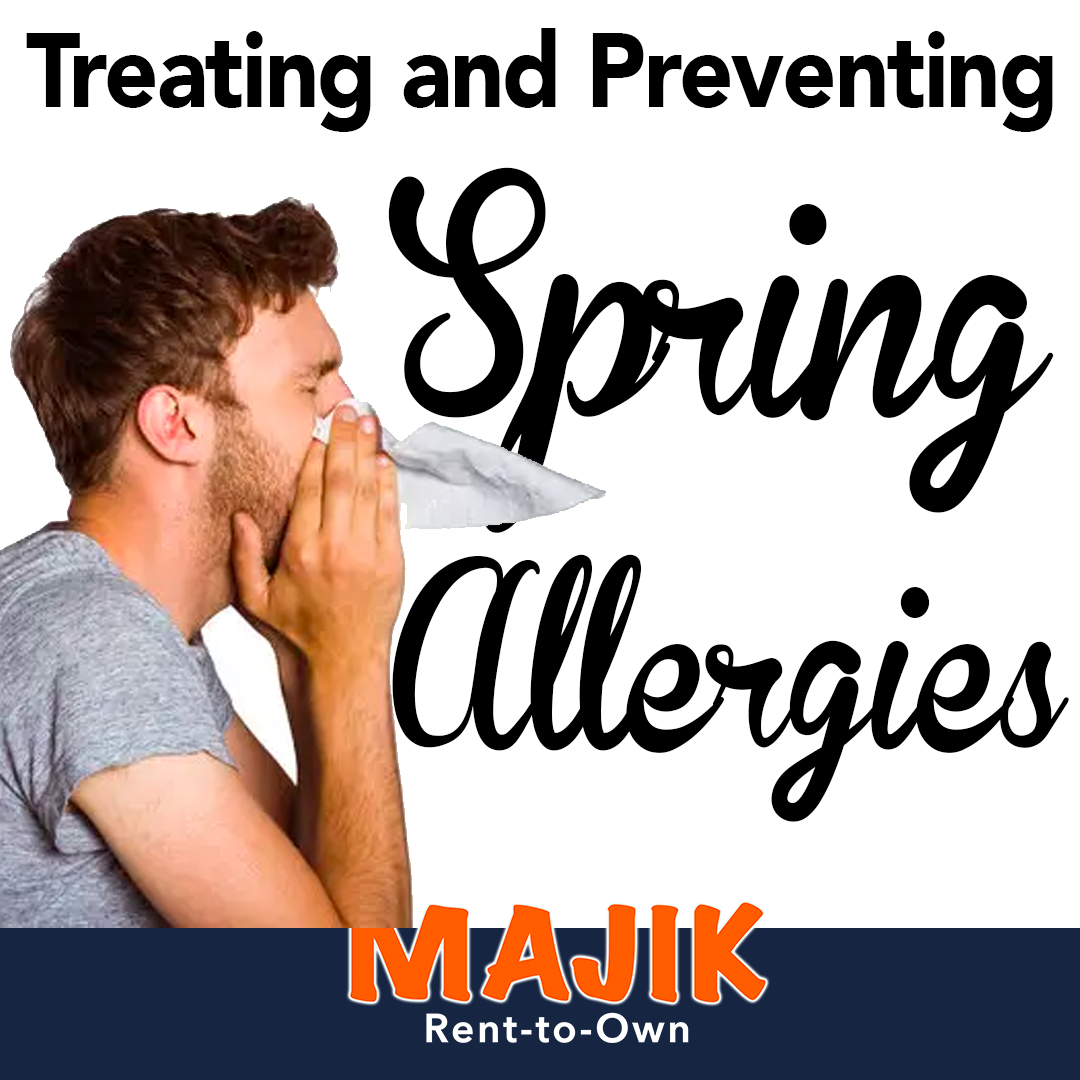
People who enjoy a break from allergy symptoms in the cold winter months often dread the return of spring. With spring comes the increased output of pollen from trees, grass, and weeds.
According to statistics from the Centers for Disease Control and Prevention (CDC), over eight percent American adults (20 million) and eight percent of children (six million) experience seasonal allergies.
Symptoms of spring allergies include:
- Sneezing
- Nasal congestion
- A runny nose
- Itchy, watery eyes
- Mouth or throat itchiness
- Wheezing
- Coughing
- Difficulty breathing
- Chest tightness
The CDC reports that children between 12 and 17 are especially vulnerable. Moreover, seasonal allergies may increase the incidence or severity of respiratory symptoms in adults and children with asthma.
Common Spring Allergens
An allergen is any substance that elicits an abnormal immune response during which the body fights off a perceived threat that is otherwise harmless.
Pollen is one such substance released by trees and other plants during the spring. They are central to plant reproduction and easily inhaled as fine, powdery particles that readily drift in the air.
The trees most commonly associated with allergies in the U.S. include:
- Ash
- Birch
- Cypress
- Elm
- Hickory
- Maple
- Oak
- Poplar
- Sycamore
- Walnut
- Western red cedar
In the later spring, grass pollens are the key culprit and may include:
- Bermuda grass
- Bluegrass
- Orchard grass
- Red top grass
- Sweet vernal grass
- Timothy grass
By contrast, allergens like ragweed are more commonly seen in summer.
Mold spores are also a common cause of allergies starting in spring and continuing right through autumn. Outdoor molds include Alternaria, Cladosporium, and Hormodendrun.
Diagnosis
Seasonal allergies are pretty self-evident and rarely need diagnostic testing. With that being said, if allergy symptoms are unrelenting despite treatment, you may want to have a doctor check for other causes or contributing factors. This is especially true if breathing problems are severe.
Severe sufferers may also need a referral to an allergist to identify the specific allergens wreaking havoc. By doing so, the doctor may be able to prescribe allergy shots to temper the immune response.
Treatment
Medications are typically used to either alleviate the symptoms of seasonal allergy or mitigate the body's response to airborne allergens. Among the options:
- Oral antihistamines work by suppressing histamine, a chemical produced by the body that triggers allergy symptoms.
- Nasal decongestants are over-the-counter products available in oral, liquid, spray, and nasal drop formulations. They offer short-term relief by causing blood vessels in the nose to shrink.
- Nasal steroid sprays, available in regular- and prescription-strength, work by reducing the swelling and production of mucus in nasal passages.
- Eye drops can be used to treat eye allergy symptoms. Options include short-term OTC drops which contain a topical decongestant or prescription drops which combine an antihistamine with a mass cell inhibitor.
Prevention
While there are few ways to entirely avoid allergens during allergy season, there are certain precautions you can take to minimize exposure:
- Know your pollen counts. Check your local weather forecast or the National Allergy Bureau website to get daily pollen counts as well as the breakdown of pollen or mold types.
- Stay indoors during high counts. If you must go outdoors, do it later in the day when counts are typically lower.
- Use a HEPA filter. These are designed to remove airborne particles. Keep windows shut and use an air conditioner if needed.
- Close your windows when driving. Shut the vents and either recirculate the air or use your air conditioner.
- Vacuum and dust frequently. "Pet-friendly" vacuum cleaners often do the best job of sucking up pollen and other allergens such as dander.
- Shower before bedtime. The body and hair can collect surprising amounts of pollen whenever outdoors. Also, be sure to wash any clothes you've been wearing as soon as possible.
- Avoid drying clothes outdoors. Pollen can easily settle in the fibers and trigger symptoms when the put the clothes on later.





